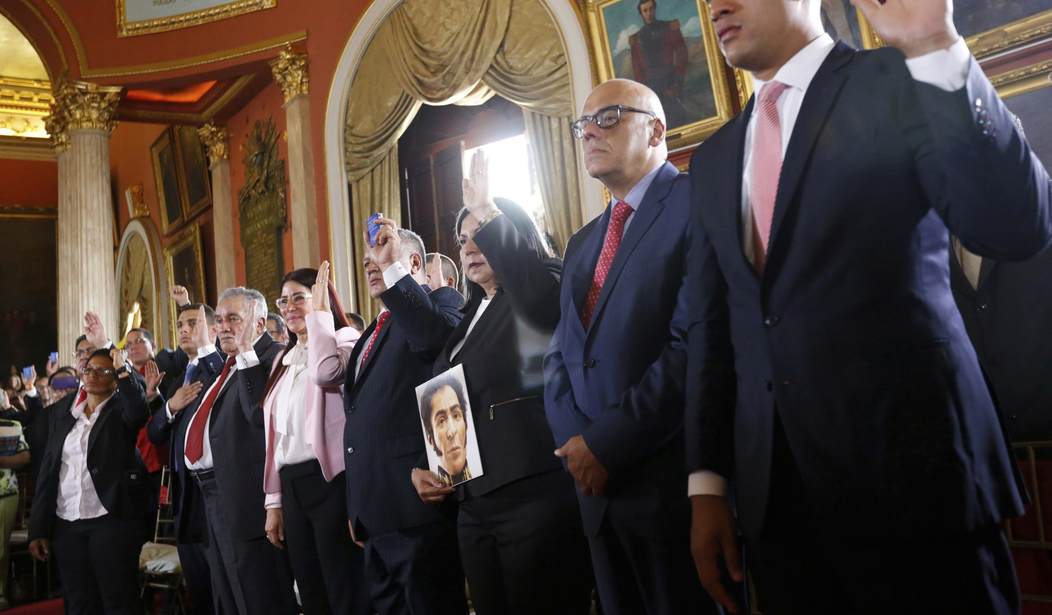WASHINGTON – A State Department official avoided calling Venezuelan President Nicolás Maduro’s regime “illegitimate” on Wednesday, the day after a separate official told a Spanish news agency that the department “respects” the official government of Venezuela.
Sunday’s Constitutional Assembly election in Venezuela saw the unseating of the National Assembly, which will be replaced with 545 Maduro supporters who make up the Constituent Assembly. As Sen. Marco Rubio (R-Fla.) described Wednesday, the election result is the equivalent of the U.S. voting to replace all members of Congress with lawmakers loyal to the executive.
On Tuesday, Spanish news agency EFE published an interview with Deputy Assistant Secretary of State for South America Michael Fitzpatrick, who was quoted as saying, “We respect the official government of Venezuela and of President Maduro at this time.”
Rubio, during a hearing before the Senate Foreign Relations subcommittee on human rights and global women’s issues, repeatedly pressed the State Department’s Acting Assistant Secretary for the Bureau of Western Hemisphere Affairs Francisco Palmieri about whether Maduro’s government is illegitimate.
“The election on Sunday was a flawed attempt to undermine Democratic institutions in Venezuela, and we support the democratically elected National Assembly in its efforts to promote and enduring, peaceful solution to the crisis in Venezuela,” Palmieri said, adding that the election results “are in question.”
While the State Department official described the National Assembly as the “only legitimate, democratically elected officials” in Venezuela, he repeatedly avoided using the word illegitimate to describe the Constituent Assembly, which Rubio said will begin rewriting the Venezuelan constitution as early as Wednesday. Palmieri emphasized that the administration does not recognize the seating of the Constituent Assembly.
Rubio said he understood that Palmieri was not authorized to use the term “illegitimate,” only that the voting process in Venezuela is flawed and the National Assembly is legitimate. Palmieri said the administration will not recognize the Constituent Assembly’s “usurpation of the powers of the duly elected National Assembly.”
“It is clear that with this effort to seat a Constituent Assembly, the Maduro government is proceeding to greater and greater authoritarian rule in the country,” Palmieri said. “The attempted seating of a Constituent Assembly will be met with swift and strong action by this administration to ensure that the democratically elected institutions in Venezuela are protected, including the role of the National Assembly.”
Rubio said the State Department cannot possibly recognize both assemblies as legitimate, and suggested that the State Department flesh out the issue quickly.
“I think that’s a point the State Department is going to have to clarify here probably in the next few hours, if not later today, when they finally try to seat these people,” Rubio said.
Sen. Bob Menendez (D-N.J.) echoed some of Rubio’s points, while applauding recent comments from U.S. Ambassador to the UN Nikki Haley. In a tweet Sunday, Haley described Venezuela’s “sham” elections as “a step toward dictatorship,” while noting that the U.S. will not accept Maduro’s “illegit” government.
The focus of Wednesday’s hearing was the ongoing peace process in Colombia, but Rubio said that the situation in Venezuela has a direct impact on its South American neighbor.
While Maduro claimed that Sunday’s result was clean, Reuters reported on Tuesday that the election might have been manipulated by 1 million votes or more. The outlet cited claims from Smartmatic, a company that has collaborated with Venezuela since 2004 on its voting systems. The company’s CEO Antonio Mugica said that the vote was manipulated “without a doubt.”









Join the conversation as a VIP Member